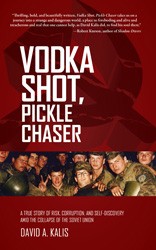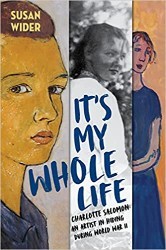Jewish life in the Soviet Union prior to its collapse can seem like a distant reality to many readers today. Alla Shapiro brings that world into searing focus in her memoir, Doctor on Call: Chernobyl Responder, Jewish Refugee, Radiation Expert. Shapiro’s book explores her experiences first living and working as a pediatrician and hematologist in Ukraine, and later in the United States; it is rich with historical details and personal anecdotes. As a resident of a country that discriminated against both women and Jews, Shapiro endured numerous hardships and managed to rise above them all to carve out a rewarding, productive career and to raise a loving, close-knit family.
In 1986, Shapiro was working at a children’s hospital in Kiev, Ukraine, when she and her colleagues were abruptly told by their supervisor that a nuclear disaster had occurred at nearby Chernobyl. Hundreds of children in the immediate area had been evacuated and were coming to their hospital for treatment. Shapiro’s compassion for her young patients was matched by her frustration and growing horror at the Soviet government’s response, which was to attempt to cover up the magnitude of the nuclear explosion. A heartbreaking example occurred when Shapiro attempted to learn more about radiation sickness by visiting the National Medical Library, where she was shocked to see dozens of empty shelves and was told in a whisper that the government had ordered the removal of all books containing the word “radiation.”
The bureaucratic lies, coupled with decades of professional discrimination, eventually led Shapiro and her family to immigrate to the United States. Along the way, they were forced to remain for six months in Italy while awaiting permission to enter America. Once they arrived in Washington, D.C., Shapiro discovered that more obstacles stood before her — in order to continue working as a doctor, she had to pass rigorous exams for foreign-educated medical professionals and then begin a residency program. While working 100-hour weeks, she also learned English, navigated a different culture, and helped her young daughter acclimate to a new school. Shapiro’s gratitude to the Jewish community that welcomed and supported her family upon their arrival in the United States and her thankfulness to work in a medical environment that fosters openness shines through in the final chapters. Her depiction of her experiences as an immigrant will resonate with readers and serve as a timely rejection of xenophobia. Those eager to learn more about life in the Soviet Union or the Chernobyl disaster will uncover many absorbing details in this book. Those looking for an inspirational read won’t be disappointed, either.
Anne Blankman has loved to write stories for as long as she can remember. She grew up in Niskayuna, New York, where she met a classmate who had survived Chernobyl and who eventually inspired Anne to write The Blackbird Girls. They are still friends to this day. Currently, Anne lives in Richmond, Virginia with her husband, Mike, her daughter, Kirsten, and two rescue cats. For several years, she worked as a children’s librarian but now she writes full-time. When she isn’t writing, Anne likes to spend time with her family, read, travel, knit, and go for long runs. She loves hearing from readers, and you can visit her at anneblankman.com or @AnneBlankman.





